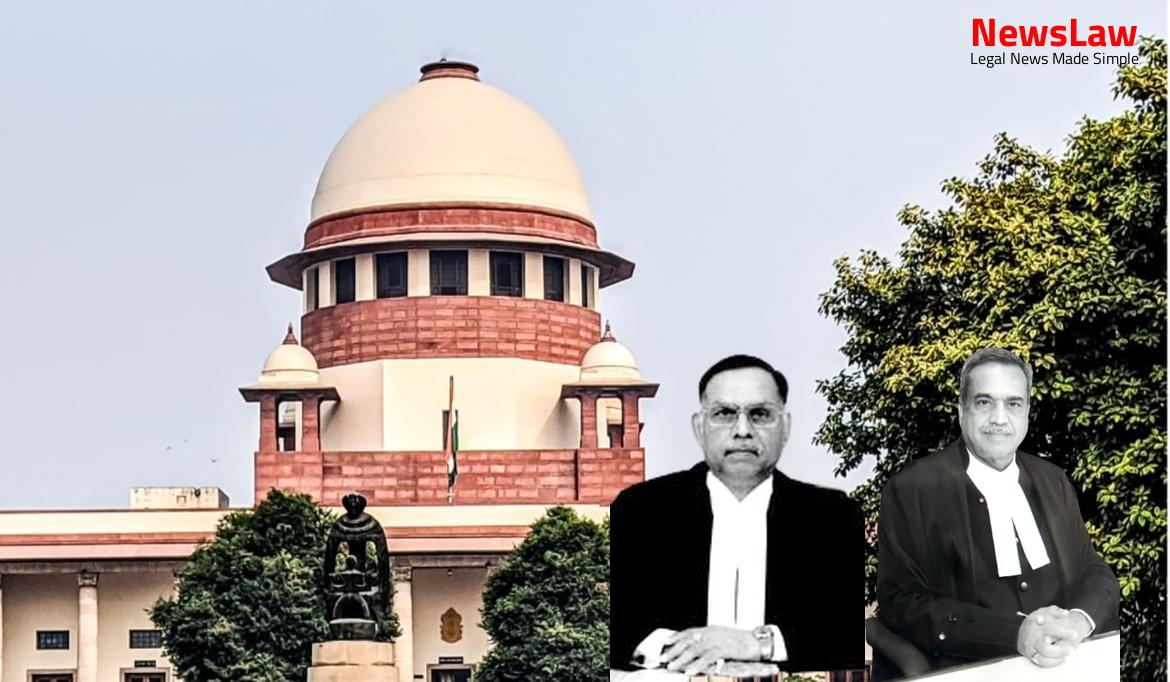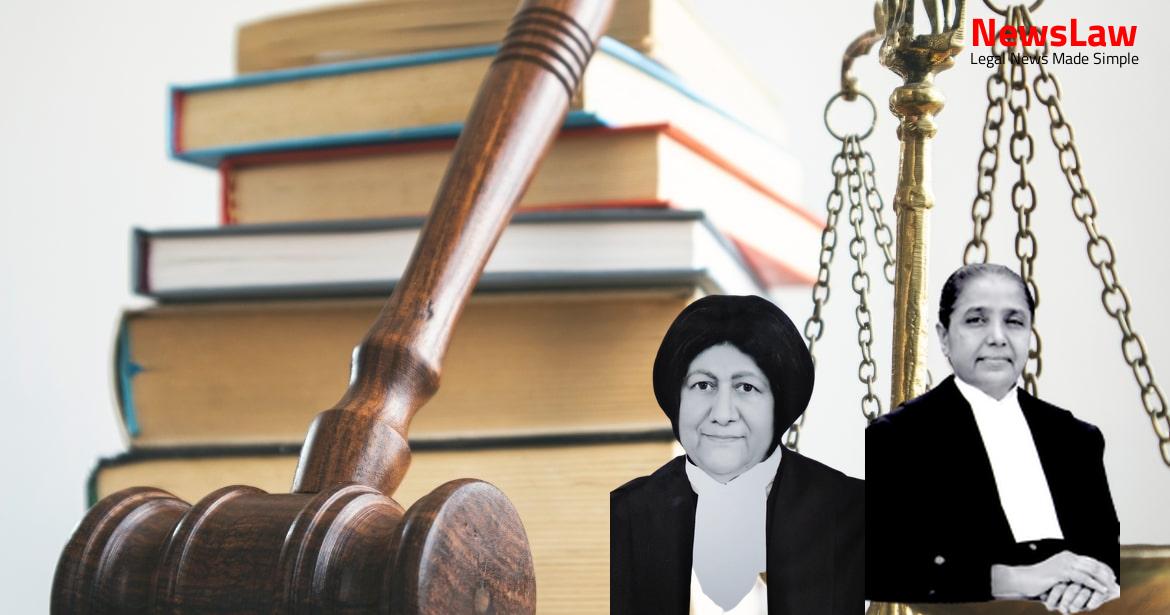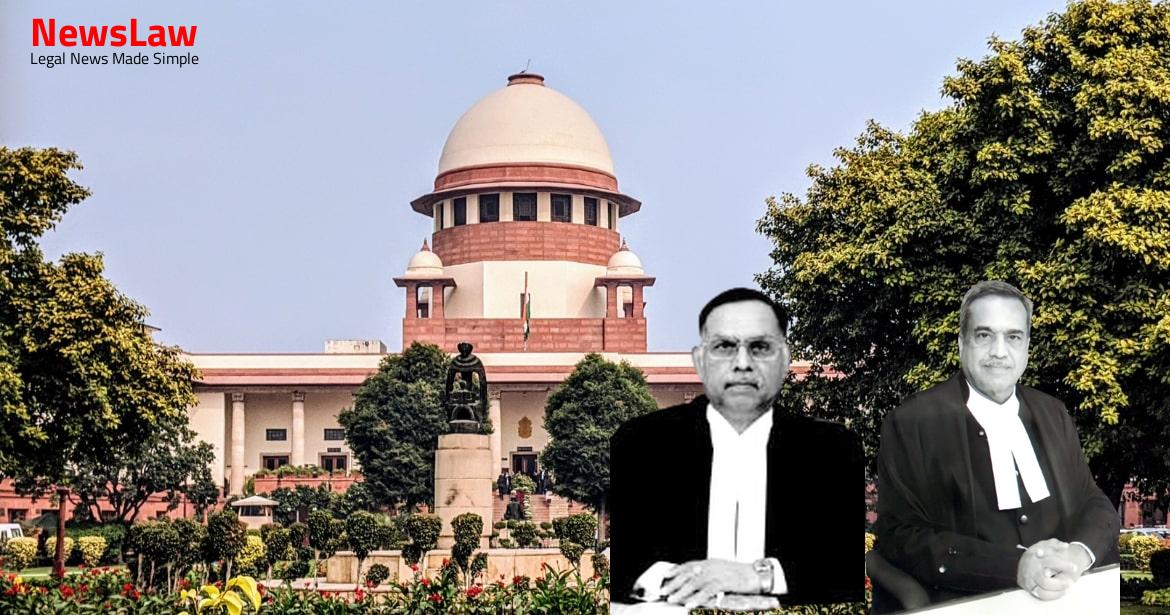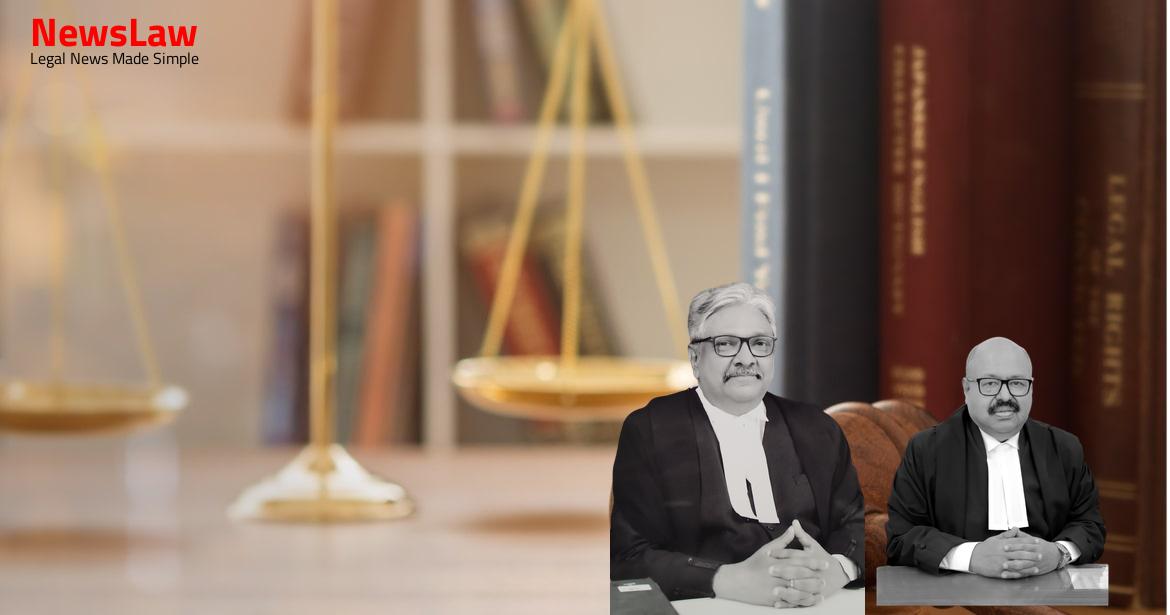In the case of Ravinder Kaur Grewal Vs. Gram Panchayat Village Sirthala, the Court delves into the registration necessity of a compromise decree dated 04.10.1985 under Section 17 of the Registration Act, 1908. The appellants, led by Ravinder Kaur Grewal, challenged the High Court’s decision regarding the registration of the decree. The petition sheds light on the intricate legal aspects such as adverse possession and the requirement of registration for decrees involving immovable property. Let’s explore the key arguments and outcomes in this significant legal battle between the parties.
Facts
- Suit No.90-A of 2006 filed by the respondents against the appellants for perpetual injunction in respect of specific areas.
- Civil Judge ruled that the compromise decree from 1985, not being registered, is inadmissible as evidence.
- Appellants filed a writ petition against the trial court’s decision, which was dismissed by the High Court.
- Appellants claimed to be in possession of the disputed area since 1951.
- A counter claim was filed by the appellants for the recovery of possession of the area in question.
- Evidence presented included an objection from the plaintiff regarding the exhibition of a decree from 1985.
- High Court upheld the requirement for registration of the decree, leading to the dismissal of the writ petition.
- The suit was based on the plea of adverse possession.
- This reflects that the plaintiff of Suit No. 250-A of 1994 had no pre-existing title in the suit property.
Also Read: Interpretation of Lease Agreement and Compulsory Registration
Analysis
- The Court overruled the judgment in Gurdwara Sahib Vs. Gram Panchayat Village Sirthala and Another.
- The issue in the current appeal is whether a compromise decree dated 04.10.1985 needed to be registered under Section 17 of the Registration Act, 1908.
- Section 17(1)(b) of the Registration Act states that non-testamentary instruments relating to immovable property valued at one hundred rupees and upwards require registration.
- However, Section 17(2)(vi) provides an exception for decrees or orders of the Court, excluding those based on compromises involving immovable property other than the suit’s subject matter.
- In this case, the decree pertained to the subject matter of the suit and did not require registration.
- The Court referenced the case of Som Dev and Others Vs. Rati Ram and Another to support this interpretation.
- The Court highlighted that the decree must not involve properties beyond the suit’s subject matter to be exempt from registration.
- The judgment in Bhoop Singh clarified the requirement of registration for decrees based on compromises.
- The High Court’s decision that the compromise decree needed registration was overturned based on the application of Section 17(2)(vi).
- Decrees or orders of a Court do not require registration according to Section 17(2)(vi).
- A possessory suit can be maintained under Article 64 even before adverse possession title is perfected.
- Decreeing a suit based on admissions is covered by Order 12 Rule 6, not Order 23 Rule 3 for compromises.
- If a compromise decree creates rights in immovable property over Rs 100 for the first time, registration is required.
- The decree must be examined if it extinguishes existing rights and creates new rights for registration.
- A compromise decree involving immovable property not subject to the suit requires registration.
- Possession acquired through adverse possession cannot be easily challenged after 12 years.
- Adverse possession can be used as a shield or defense in legal proceedings.
- Plea based on Sec. 27 of the Limitation Act found to lack merit as it does not automatically grant ownership.
- The Gurudwara Sahib case was overruled in Ravinder Kaur Grewal case regarding compromise not evading stamp duty.
- Compromise decree must be bona fide
- The judgment discusses the conditions for a compromise decree to be valid
- It emphasizes the importance of the compromise being fair and reasonable
- The legal position regarding compromise decrees is clarified in paragraph 62
- The reasons given in paragraph 19 of the above case are not relevant to the present case.
- The facts of the present case do not align with the situations described in paragraph 19 of the above case.
- Therefore, the arguments presented in paragraph 19 of the previous case do not apply here.
Also Read: Enhancing Compensation and Modifying Sentences: A Legal Analysis
Decision
- The appeal is allowed
- The compromise decree dated 04.10.1985 is directed to be exhibited by the trial court
Also Read: Exemption from Property Tax for Central Government-owned Buildings
Case Title: MOHAMMADE YUSUF Vs. RAJKUMAR (2020 INSC 133)
Case Number: C.A. No.-000800-000800 / 2020



